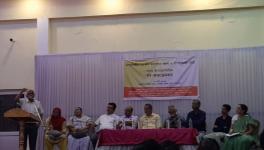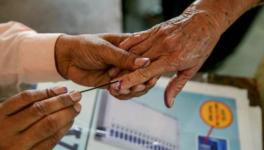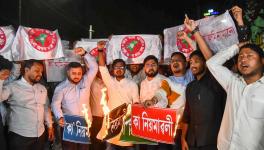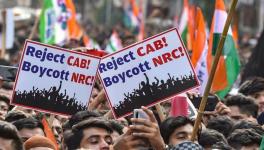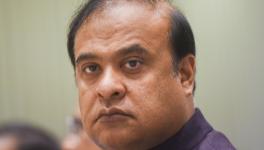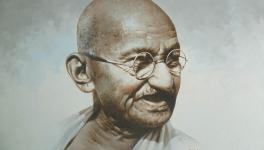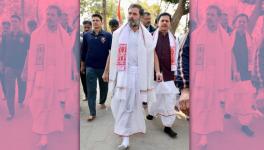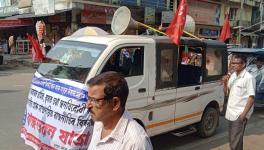After Serving Indian Army for 30 Years, Retired Soldier Rendered Stateless in Assam
Image for representational use only.Image Courtesy : The Wire
New Delhi: After serving the nation for 30 years as a soldier of the Indian Army, 52-year-old Md Sanaullah was declared a “foreign national”, was arrested and sent to Goalpara detention centre in Assam on May 28. This was done as part of the elaborate process underway in Assam in order to throw out Bangladeshi immigrants whose names do not figure in the National Register of Citizens (NRC) and whose citizenship has been doubted.
Sanaullah, a resident of Guwahati’s Satgaon area, who retired on June 1, 2017 ,from the corps of the Electronics and Mechanical Engineers (EME) of the Indian Army as subedar, was awarded the rank of honorary captain by the President on January 26, 2017. He was confident that he, along with his family, would be included in the draft list, as he had given all the valid documents such as his father’s electoral roll record of 1966, among others. But to his utter shock, he, his wife and his three children were not included in the NRC draft list.
But a foreigners’ tribunal at Boko in Kamrup district on May 23 declared him a “foreign national of post 25-3-1971 stream”. It means one who belonged to Bangladesh and entered Assam illegally after March 24, 1971 – the cut-off date for citizenship as per the Assam Accord of 1985, which was signed between the Rajiv Gandhi government and the leaders of the Assam Movement on August 15, 1985, in New Delhi after six-year agitation demanding identification and deportation of illegal immigrants was launched by the All Assam Students’ Union (AASU) in 1979.
The decision of the Boko Tribunal – which has the jurisdiction over Sanaullah’s native village Kalahikash – has several discrepancies, alleged Shohidul – who had defended him before the tribunal – pointing out the most glaring one that the tribunal did not take into consideration the record that he had served in the Indian Army from 1987 to 2017.
Sanaullah had submitted a copy of his Army discharge book that recorded his date of birth as 30-07-1967. It said Sanaullah’s date of enrolment in the Army was May 21, 1987 and the date of discharge from the force was May 31, 2017.
An inquiry report of the border police submitted to the foreigners’ tribunal in 2008 claimed that Sanaullah was 50 years old and his profession was “labour” (sic). The report stated that he came to India through a secret route for a better living. His wife’s nationality was also suspected, the report said. When the border police’s report was prepared in 2008, Sanaullah was serving in a counter-insurgency operation in Manipur, documents submitted by him showed.
However, Sanaullah told the tribunal that the IO neither visited his house nor issued any notice to him. Shohidul asked, “The report says the IO (investigating officer) visited him on two dates. One of those dates shows that he was in Manipur as a part of Operation Hifajat, a counter-insurgency act. So, how could the IO meet him at his house?”
The tribunal, in fact, stripped off his citizenship on highly technical grounds. During cross examination, Sanaullah had said he was born in 1967 and joined the Army in 1978. But it didn’t match the official papers which said he joined the army in 1987.
The tribunal questioned why Sanaullah did not get himself registered in the voters’ list of 1986 even though he had attained the age of 20 years.
Notably, the voting age was lowered from 21 to 18 only on on March 28, 1989 through the 61st amendment to the Constitution.
Shohidul said Sanaullah got to know about his D-voter status after the first draft of NRC – which has left out around 4 million people – was published in December 2017.
According to the tribunal order, the age mentioned in the voter list of 1989 didn’t tally with the year of birth submitted to the tribunal. “If the opposite party (Sanaullah)’s date of birth is 1967, then he should have been 22 years in 1989, not 25 years as mentioned in the voter list of 1989.”
ALSO READ: Threat of Being Rendered Stateless After Serving the Very State
In addition, Sanaullah had told the judge in cross examination that his father died in 1973, but he said his youngest sister’s age is 40 when asked about the same. “Now the question is if his father had expired in 1973, i.e. 46 years ago, then how come the youngest sister is aged about 40 years.” It also questioned why some of his family members’ names didn’t feature in some electoral rolls.
The Supreme Court in September last year dealing with mismatch of names in the electoral rolls in Sofia Khatun case had termed it a “common error” and not a ground for her to be declared a foreigner and kept in detention centre.
Though in Sanaullah’s documents too, there is error in is name, the Tribunal seemed to have concentrated mainly on the discrepancies in age.
Sharing the threat of being rendered homeless, Sanaullah had earlier told NewsClick when his name did not feature in the draft NRC along with his wife and children, “I had submitted the legacy data of my father, whose name is mentioned in the electoral roll record of 1966, land documents and the voters’ list, in which my name is mentioned. The same legacy documents were used by my elder brother and his children. In the first list made public on December 31, 2017, my elder brother and his two sons were included. I was called by the NRC officials for some queries they had. I appeared and clarified everything, and they were satisfied with my documents,” he said.
“At that time, I had told them that I had a job offer from Bangalore. If you need further clarification, my brother will come, to which they had agreed”.
“When the draft list came, except we five – me, my wife and my three children, the names of rest of brothers and sisters were included,” he had said.
Asked if he thinks there is any discrepancy (major or minor) in his papers he had submitted, he said, “No, not at all. I used the same legacy data my brothers used, village documents and land documents of 1943.”
He had changed his wife’s name from Shadbano to Saleema Begum. He used the changed name in his service records, but did not get time to get her electoral roll records updated with the changed name because of service commitments.
“I produced relevant papers to support this. Her changed name is everywhere, including my service record and pension papers. But I could not get it changed in the voters’ list because I was outside the state during my service period. If it was the reason, her name should not be included. I and my children should figure in the draft list,” he said.
Commenting on the time given for claims and objections, he said, “If someone appears in the examination and fails, he gets demoralised. We attempted twice but failed. It has brought our morale down.”
Get the latest reports & analysis with people's perspective on Protests, movements & deep analytical videos, discussions of the current affairs in your Telegram app. Subscribe to NewsClick's Telegram channel & get Real-Time updates on stories, as they get published on our website.









